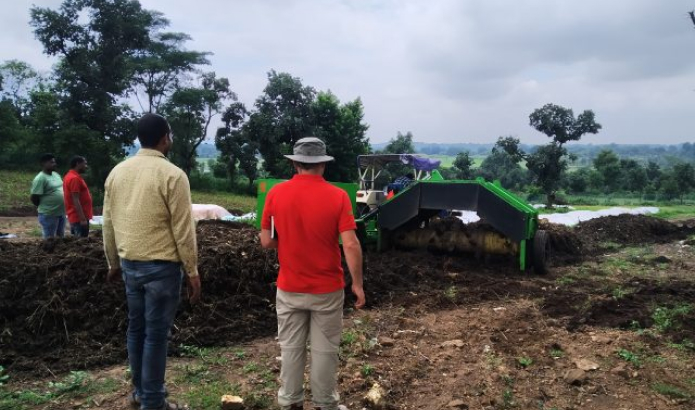Large scale composting units: A solution to upscale regenerative agriculture?

India has been facing a problem of soil fertility for decades. The Green Revolution was one of the first attempts to solve this problem, but it had many shortcomings that have only become more apparent as time went on. The Green Revolution was based on heavy use of chemicals and an increase in crops grown per acre, which caused farmers to lose their traditional knowledge about how to maintain soil fertility without relying on chemicals. Farmers in the states of Madhya Pradesh and Jharkhand, after realizing the negative effect of chemical use in soil, animal and human health, are looking into new ways to improve the soil quality and make them fertile again.
In recent years, there has been a number of Indian farmers adopting regenerative agricultural practices as a way to counter part of the negative effect of decades of agricultural chemical input uses. The goal of regenerative agriculture is to restore soil health and fertility by introducing a set of integrated farming practices. One of these practices is the application of organic compost to the farm plot. Compost is a soil amendment made out of decomposed organic matter that improves the aeration and moisture retention capacity of the soil while enriching it with essential nutrients that enhance the soil microbial activity. Thus, allowing essential plant growth nutrients to be available for plant uptake in the soil. As part of the Green Transformation Pathways (GTP) project, the concept of Large-Scale Composting Units has been introduced in the states of Madhya Pradesh and Jharkhand where access to information about regenerative agricultural practices and access or the production of organic compost is limited or nonexistent.

